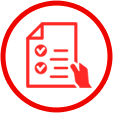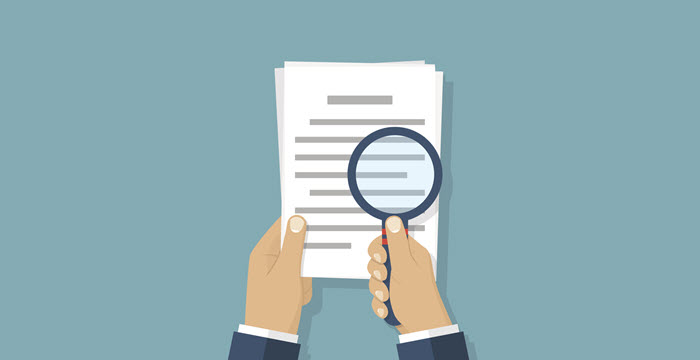What Are the Basic Background Check Secrets and Policies?
Posted on: July 4, 2019 by Gavin MuirheadWhen it comes to having a background check performed on you or performing one on someone else, you might not know exactly what goes into them, who uses them and why, and when one is needed. We will explain that, but we are also going to give away some of the secrets behind them that will affect the way you view and interpret the results.
The Eight Types of Background Checks
There are 8 different kinds of checks that someone will generally need, though some may not use every single type. These people are employers, banks, landlords, and car dealers for the most part. Let’s look at who uses what information from these reports.
- A criminal history check will tell the inquirer everything they need to know about the legal mistakes a person has made in the past. Generally, employers will not hire people who have been convicted of a felony.
- Credit checks are usually used by landlords, car dealers, and banks. They can see your credit score, if are late on payments or in collections, and to which lenders you are delinquent. Your score goes down when you make late payments on a credit card or loan or when you didn’t pay back anything at all.
- Driving record checks are done by employers when you apply to be any type of driver. If you have a bad history of getting tickets or being involved in crashes with your vehicle, it does not reflect well on you and may jeopardize your chance of working in that position.
- Educational history is important for some employers who require an employee to have a degree in a certain field. Do not lie on your resume and say you went to college when you did not. Your potential employers will uncover your lie when they run the educational report and you’ve wasted both your time and theirs.
- Work history and references are required by many potential employers. They may call your old employers to verify that you did indeed work there. They are allowed get certain information about your dates of hire and termination and if you are eligible to be rehired. If you were fired, they will like answer no, you are not eligible for rehire. It’s best to explain the situation with your spin on it rather than them finding out from someone else.
- Social security number checks will verify that you have a valid number, that you are who you say you are, and that you are a legal citizen. Most employers will not hire you if you lie about your social security number or if you are not legally in the country. It’s illegal for employers to hire undocumented citizens, but some do it under the table.
- Liens and civil judgment background checks are sometimes used by employers to see that you are financially responsible and have no standing debts.
- Drug tests aren’t what you would generally think of a being a background check, but it gives an employer a big first impression of you. If your urine tells them that you are using illegal substances, there is a good chance you have been for a while. It is a part of your history.
What Do Background Checks Say About You?
Each one of these types of background checks tells a different story about who you are and who you’ve been. They determine:
- The fiscal responsibility of a person
- Whether a person is lying about their identity
- If someone is qualified for a position
- Whether someone is trustworthy
- Whether a person is a danger to others or not
Secrets You Should Know About Background Checks
Background checks aren’t always as straightforward, up-to-date, or honest as they may seem. Here’s why.
- Internet background checks don’t always tell you absolutely everything you need to know about a person. They reveal publicly available and shallow information, but any truly private information cannot be found with a quick search. You’ll need a private investigator for that. (Employers should not be doing this, though. If they are, that’s a red flag.)
- You have the right to know if you were disqualified from a position because of your criminal history. Employers have to tell you what it is that disqualified you and why.
- Regular internet searches for your name reveal a lot about your background as well. Some employers look at your social media sites to determine whether or not you’re the right fit for their company. Be careful about what you make public.
- Some employers will ask you questions that background checks won’t cover. Sometimes this is legal, but it isn’t always. Know the law and know your rights. If they do not have the legal right to ask you those questions, you don’t have to tell them.
- Past employers can’t slander you in a reference check. They are allowed to talk about less than satisfactory work, but if they lie or embellish it, they are open to lawsuits. If you have been lied about by your last boss, you have the right to set the record straight.

Where to Perform a Background Check
At Affordable Background Checks, we give you all the information you need without making you pay exorbitant amounts to get it. If you need to perform a search on someone, we have you covered for lower fees than the competition.




